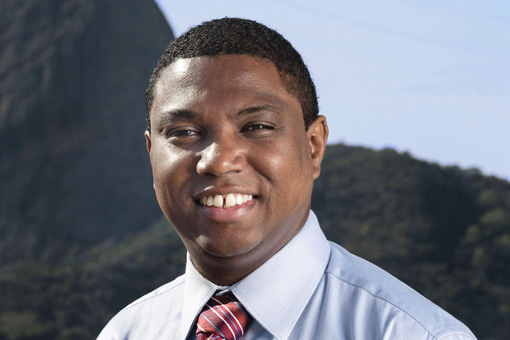“Don’t be afraid of bureaucracy. Turn it into an opportunity.” According to Brazilian entrepreneur Edivan Costa, that has been the guiding phrase of his life and career. But he is the first to admit that in his country, it’s easier said than done: Brazil ranks 126th out of 183 countries in ease of starting a new business, according to the World Bank/International Finance Corporation’s 2012 annual Doing Business report.
That’s why Costa founded SEDI, a company dedicated to helping new businesses navigate Brazil’s often-frustrating bureaucracy. SEDI, the acronym for Serviços Especializados de Despachante Imobiliário (Specialized Forwarding Agent Services), offers one-stop shopping for businesses trying to obtain the federal, state and municipal licenses they need to operate. And that’s a significant service in a country where, according to the Doing Business report, it takes an average of 13 procedures and 119 days to register and license a business. Certain businesses, such as a gas station, can require 120 separate licenses. It’s one reason why 40 percent of Brazilian start-up businesses do not survive more than two years after opening, according to a 2011 report from Brazil’s national statistics agency, IBGE.
SEDI began in 1992 as a small firm in Costa’s home town of Belo Horizonte, but the demand for its services helped it expand across Brazil. The company now has 80 employees and branches in 11 states, and serves major clients like Carrefour, Lojas Americanas and Grupo Pão de Açúcar, Latin America’s biggest retail company by revenue.1
Costa himself is the best advertisement for the success that comes to anyone who can find his or her way through Brazil’s bureaucratic maze. The youngest of six children and the son of a metallurgist and a domestic servant, Costa, 40, got his first real job at the age of seven—gathering paper and recyclables on the streets with a friend for extra money.
“Where I grew up in the favela, property wasn’t legalized, commercial activity wasn’t legalized,” he recalls. “What does that create? A lack of opportunity. Imagine a seven-year-old kid in a favela trying to figure out how to help his parents pay for school. What’s he going to do? Go out on the streets and rob people—or work?”
When Costa’s father suffered a stroke, he passed up the opportunity for a professional soccer career to stay closer to home. His business skills were recognized early. Costa rose from an office boy to become a partner in a local firm, helping to draw up legal contracts. By 1995, he had his own office and employees and was advising the Minerão supermarket chain, his first big client. SEDI’s client list now numbers over 70, and Costa’s achievements were recognized in 2009, when he was selected by the nonprofit organization Endeavor as a High-Impact Entrepreneur, making him eligible for mentorship and workshops with business leaders.
Costa’s clients are also appreciative of his services. “It would be very difficult to stay on top of the rules in different states without SEDI’s help,” said Ricardo Caparica of Carrefour in a 2009 interview.2
Costa is resolved to use his skills for the benefit of Brazil’s larger business community. “Our big dream in the next year is to set up a training center,” Costa says. “I’d love to teach a class on bureaucracy in Brazil—how we can reduce bureaucracy.” If there are any roadblocks to setting up such a center, count on Costa to overcome them.





